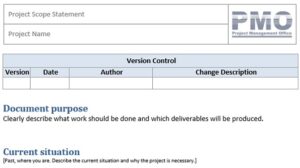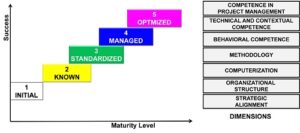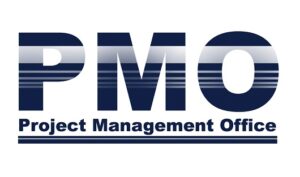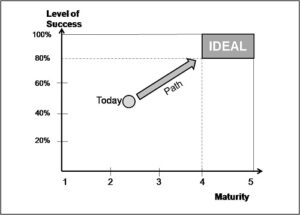The article “Unlocking the PMBOK Guide Seventh Edition: Principles Performance Domains and Essential Tools for Success” explores the key changes in the latest PMBOK Guide. It highlights the shift from traditional processes to a principle-based approach, emphasizing performance domains that focus on project outcomes. Readers will gain insights into essential tools and strategies for applying the new framework effectively, ensuring success in modern project management practices.
Introduction to the PMBOK Guide Seventh Edition
Over the years, the PMBOK Guide has been the go-to resource for project managers worldwide. It’s like an old friend who’s always there to offer guidance. From its early days, when it emphasized processes and rigid structures, the guide has evolved to meet the dynamic needs of modern projects.
With the release of the seventh edition, the PMBOK Guide takes a bold step forward. Gone are the days of sticking strictly to processes. Instead, it embraces a principle-based approach that offers flexibility and adaptability. This shift is a game-changer in project management, focusing on achieving outcomes rather than just ticking boxes.
Imagine being a project manager who no longer has to fit every project into a predefined mold. The seventh edition empowers you to tailor your approach, ensuring success in today’s ever-changing project landscape.
Principles Over Processes
From Processes to Principles
In the world of project management, the transition from a process-based to a principle-based approach marks a significant evolution. Instead of focusing on a rigid set of steps, the PMBOK Guide Seventh Edition encourages us to embrace core principles that guide decision-making. This shift allows project managers to adapt their strategies to the unique demands of each project, ensuring better alignment with organizational goals.
Flexibility: The Key to Success
Why is flexibility so crucial in project management today? In an era where change is the only constant, the ability to pivot and adjust is invaluable. The principle-based approach offers the flexibility needed to navigate uncertainties and seize opportunities. It empowers project managers to create custom solutions that address specific challenges, leading to more successful outcomes.
By prioritizing principles over processes, the PMBOK Guide Seventh Edition provides a framework that is not only more adaptable but also more relevant to the diverse and dynamic nature of modern projects. This shift is a testament to the evolving landscape of project management, where success is defined by outcomes, not just adherence to processes.
Understanding Performance Domains
In the PMBOK Guide Seventh Edition, the focus shifts from a process-oriented framework to one centered around performance domains. These domains are crucial as they encompass a collection of related activities that are essential for achieving project success. Unlike the traditional task-centered approach, performance domains emphasize the importance of outcomes and value delivery.
| Old Approach | New Approach |
|---|---|
| Process-centric | Outcome-focused |
| Task-based | Performance domains |
The performance domains in the new edition include:
- Stakeholder Engagement
- Team Performance
- Development Approach and Life Cycle
- Planning and Delivery
- Measurement
This modern approach empowers project managers to prioritize the bigger picture, focusing on delivering value and achieving desired outcomes. By understanding and applying these performance domains, teams can better align with strategic objectives and ensure that their projects contribute meaningfully to organizational success.
Essential Tools for Modern Project Management
In the ever-evolving landscape of project management, having the right tools is crucial for success. The PMBOK Guide Seventh Edition introduces a suite of essential tools designed to align with its principle-based approach. These tools help project managers maintain flexibility and focus on outcomes, ensuring their projects are both efficient and effective.
One notable tool is the Kanban board, which offers a visual method for managing tasks and workflows. It aligns perfectly with the new guide by promoting transparency and adaptability. Another example is Agile project management software, such as Jira or Trello, which supports iterative development and continuous feedback, key principles emphasized in the seventh edition.
Consider the story of a project manager who utilized these tools for a cross-departmental initiative. By leveraging Kanban boards and Agile software, the team was able to streamline communication and adapt to changes swiftly, ultimately delivering the project ahead of schedule. This experience highlights how integrating these tools can transform project management, aligning with the PMBOK Guide’s focus on adaptability and value delivery.
Applying the New Framework
Imagine you’re leading a tech startup’s expansion project into a new market. How do you ensure the project aligns with the latest project management best practices? Enter the PMBOK Guide Seventh Edition, a game-changer for modern project management.
To effectively implement this framework, start by embracing its principle-based approach. Focus on outcomes rather than rigid processes. This shift encourages teams to remain adaptable, allowing them to tailor strategies to the unique demands of each project.
Consider the case of a global company rolling out a new software platform. By applying the seventh edition’s framework, the project manager prioritized stakeholder engagement and risk management—two critical performance domains. This focus ensured the project not only met its deadlines but also delivered value that resonated with users.
Another strategy is continuous learning. Encourage your team to experiment and adapt as the project progresses. This iterative process mirrors real-world scenarios, where change is the only constant.
Ultimately, the key to success lies in integrating these principles seamlessly into daily operations. As you apply this new framework, remember to ask yourself: Are we delivering value and achieving our desired outcomes?
Overcoming Implementation Challenges
Transitioning to the PMBOK Guide Seventh Edition can present several hurdles, but with the right approach, these can be effectively managed. Let’s explore some common challenges and ways to overcome them.
- Lack of Familiarity: Many teams are accustomed to the previous editions’ process-based approach.
- Resistance to Change: Shifting mindsets to embrace new principles can be daunting.
- Integration with Existing Practices: Merging new methodologies with established workflows may cause friction.
To tackle these challenges, consider the following solutions and tips:
- Comprehensive Training: Conduct workshops and training sessions to familiarize your team with the new principles. This not only builds understanding but also confidence.
- Change Management Strategies: Implement strategies that gently shift team culture towards valuing flexibility and outcomes.
- Pilot Projects: Start by applying the new framework to a smaller project. For instance, a friend of mine led a nonprofit’s fundraising campaign using the seventh edition, and the focused approach led to a significant increase in donor engagement.
By addressing these challenges head-on, you can pave the way for a smoother transition and set your projects up for success.
Measuring Success in Project Management
Success in project management isn’t just about completing tasks—it’s about delivering value and achieving desired outcomes. With the PMBOK Guide Seventh Edition, understanding key metrics for success becomes crucial.
- Project Schedule Adherence
- Budget Compliance
- Stakeholder Satisfaction
- Quality of Deliverables
- Team Performance
Each of these metrics provides insight into different aspects of project performance, allowing teams to gauge their progress effectively. Here’s a quick overview of their impact:
| Metric | Impact on Projects |
|---|---|
| Project Schedule Adherence | Ensures timely delivery, enhancing client trust. |
| Budget Compliance | Prevents cost overruns, preserving financial resources. |
| Stakeholder Satisfaction | Fosters strong relationships and future collaboration. |
| Quality of Deliverables | Guarantees the product meets or exceeds expectations. |
| Team Performance | Drives efficiency and morale within the team. |
The importance of continuous improvement cannot be overstated. By regularly reviewing these metrics, teams can identify areas for enhancement, ensuring that projects not only succeed but thrive in an ever-changing landscape. Embracing this mindset leads to sustained excellence and innovation in project management practices.
Real-Life Project Success Stories
Take, for example, a tech startup aiming to launch an innovative mobile app within six months. By adopting the PMBOK Guide Seventh Edition, the project team embraced a principle-based approach, focusing on value delivery and stakeholder engagement. Instead of rigidly following predefined processes, they prioritized adaptability, enabling them to respond swiftly to market feedback.
Throughout the project, performance domains were leveraged to enhance outcomes. The team consistently revisited the project’s vision to ensure alignment with stakeholder expectations, resulting in a product that exceeded user satisfaction benchmarks.
One of the key lessons learned was the importance of flexibility. By allowing room for iterative development, the team was able to incorporate user feedback effectively, leading to a more refined final product. Additionally, emphasizing collaboration across all levels fostered a culture of trust and innovation, crucial for project success.
This real-world example demonstrates how the new PMBOK Guide can transform project management practices. By focusing on principles and outcomes, teams can not only meet their objectives but also deliver extraordinary value.
Recap of Key Principles
As we journey through the transformative landscape of the PMBOK Guide Seventh Edition, let’s revisit the core principles that are reshaping project management:
- Value Delivery: Prioritize delivering value to stakeholders and aligning project outcomes with their expectations.
- Leadership and Teamwork: Foster a collaborative environment where leadership at all levels is encouraged.
- Adaptability and Resilience: Embrace change and uncertainty as opportunities for growth and innovation.
- Stakeholder Engagement: Actively engage stakeholders to ensure their needs and interests are considered throughout the project lifecycle.
- Continuous Improvement: Commit to ongoing learning and process enhancement to achieve sustained success.
Adhering to these principles not only enhances project success but also cultivates a culture of excellence and innovation. By integrating these guidelines, project managers can navigate challenges with confidence and deliver exceptional results.
FAQ on PMBOK Guide Seventh Edition
Q: What is the biggest change in the PMBOK Guide Seventh Edition?
A: The most significant change is the shift from a process-based to a principle-based approach. This new edition emphasizes flexibility and focuses on performance domains that prioritize project outcomes.
Q: Are the traditional processes completely removed?
A: No, the traditional processes are not completely removed. Instead, they are integrated within the performance domains to provide a more adaptable framework that can be tailored to different project needs.
Q: How does the new edition support agile practices?
A: The seventh edition embraces agile principles by promoting adaptability and continuous improvement, allowing project teams to respond effectively to changing environments and stakeholder needs.
Q: Is the PMBOK Guide Seventh Edition suitable for all industries?
A: Yes, the principles and performance domains are designed to be applicable across various industries, making it a versatile tool for project managers regardless of their field.
By addressing these common questions, the PMBOK Guide Seventh Edition aims to clear misconceptions and guide project managers in effectively implementing its innovative framework.
Conclusion and Next Steps
As we wrap up our exploration of the PMBOK Guide Seventh Edition, it’s clear that embracing these new principles can transform your approach to project management. By focusing on performance domains and outcomes, you can lead projects with greater adaptability and success.
We encourage you to start integrating these principles into your daily practices. As you do, you’ll likely see improvements in both project outcomes and team satisfaction. Remember, continuous improvement is key, and each project is an opportunity to refine your skills.
For those eager to dive deeper, numerous resources are available. Consider exploring online courses, webinars, and official PMI publications to further enhance your understanding.
Take the first step today by applying these insights to your next project, and watch as your project management capabilities flourish.
Must-Reads to Deepen Your Knowledge
PMI – PROJECT MANAGEMENT INSTITUTE. A Guide to the Project Management Body of Knowledge and the Standard for Project Management, 7th Edition, Pennsylvania: PMI, 2021.






One Response